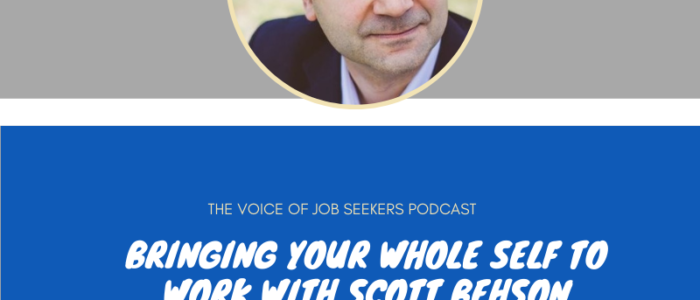
Your resume is essential in 2022, but your job search starts the moment you sense there’s time for a change. Many job seekers think that their resume is a magic wand, but it’s not. And answers to how to position yourself are beyond your resume. Your other decisions and experiences will inform your resume. It matters more who is looking at your resume (assuming you have a quality document) than how many are looking at your resume. So, let’s look way past it if we want to inform what should be included. I have a friend who succinctly said, “Your resume is not a magic wand.” Years later, this still holds.
It’s time to reevaluate why a successful job search needs a broader perspective:
- You want to be findable by your next employer as much as finding an employer. It’s quite a big compliment when you’re discovered and come recommended. It means your value is being communicated in a way that’s not just flattering. If you’re not being found, you’re flirting with doubt. And it’s a horrible feeling to be enticed by uncertainty.
- It would help if you had concrete ways to lead with your strengths other than a single document. Just as an architect needs additional views for others to see what he wants to be built, you need different views for people to know what you’ve made.
- In a competitive job market, you want to stand out like a city on a hill. You can only do it if you’ve communicated your uniqueness. How you deliver unique value matters as much as what you offer.
- Today’s modern job search requires a look below the surface, like understanding the employer, industry, company, and team. Yes, it’s that competition for the best jobs, higher compensation offers, and access to future career changes.
Time to stop binge tweaking your resume. It’s time to strategize.
Here are 12 other strategies, tools, and tips beyond the resume:
1. Your name as SEO and a digital asset
Google searches of your name and reputation are done by people you date to an employer considering you to be interviewed. Make sure future employers find your name the same way everywhere on and offline. If you have a common name, consider using the middle initial or complete middle name. Consider using it for conferences you attend or present, papers or articles you write, or in conversations, whether one-on-one or in groups. It’s arguable if your nickname would help you stand out on the web, but if it’s only something your family or childhood friends know you by, then it would be better to use your formal name.
2. Change, Turbulence, and Adapt
Employers will want to know how you adapted to the pandemic when it comes to your career, whether you were employed or not. You’ll need to answer that question as if you were strategic and successful in navigating change. Every business claims they have a fast-paced, ever-changing environment. They will expect you to offer specific examples of how you managed and shifted priorities and how you adapted to change.
3. Researching, targeting, and reaching out to companies
Many companies are conducting more than four and up to 14 interviews with a single candidate. This process takes more than three months to complete. You may decide to interview the company with the least amount of interviews. Should you pursue companies with a longer process, get to know the company deeply by learning more about its employees. Social platforms like LinkedIn show the employees on company pages and make finding and reaching out to employees easy.
4. “Essential skills” are the new “soft skills.”
I love how Magalie Rene, founder of Workplace Catalyst, frames skills as “essential“ instead of “soft.“ It’s hard to imagine a remote, in-office, or hybrid workplace without these vital skills. It’s also hard to imagine life without wind. You must know what they are and which ones you deploy as a strength. These skills must be evident as you relate to a potential employer, references, or future collaborators.
5. Professional development and how you are using it
It is expected you’ll obtain the advanced training needed for your career. Employers expect you to own the many phases of your career. Some successful job candidates will negotiate with the employer to pay for training as part of their compensation package. Some employers offer to pay for training primarily if an outside training company facilitates it. But many companies don’t deliver to pay for training for career advancement. You have more control of your career by investing in essential training.
6. Are your livelihood, life, and career lines blurred?
Whether it was for a short time or long, people saw their career and life merge lanes. Job seekers consider how their lives need to look before they change careers to make sure there isn’t a conflict. If you’re not feeling the priorities of life first before your job, you’re trapped in the pre-Covid world. I’m reading my friend Scott Behson’s book, “The Whole Person Workplace.” You can watch or listen to our conversation about his book. I know many job seekers are tired of parsing their life into two parts and feel bound only to enhance one. I’ve said before to recognize the nuances of your lifestyle; they will show you how to shape your career around life’s challenges. I believe that remains true to this day.
7. Revisit everything meaningful
I asked a colleague once what she thought was an essential part of changing your career when you’re stuck. She said, “I recommend he or she clean their closet.” I thought she was being facetious at first, but she was serious. She said people often shelved the remainder of their reasons away if they wanted to come back to it. I realized then I did too. When we consider our motivation for change, we think about our past and our why. And maybe it isn’t always a literal closet we clean, but one that represents where we shelve things we believe we are leaving behind. The pandemic made us more thoughtful about what’s important to us.
8. Incessantly follow-up
The lack of follow-up is a mistake many job seekers make during the interview process. But it’s also a mistake many more people make when they meet others who can help them. There is a certain amount of discipline to make follow-up calls or send emails as reminders to validate actions two people agreed on. When you are in a job search, the responsibility is yours. You miss out the most when people don’t follow through because you didn’t communicate your needs to them.
9. Get feedback on everything
When we were young, we were all about our freedoms, but later we undervalued feedback from qualified people. Good feedback comes from anywhere and anybody, but there are times the source matters as much as the question.
10. Channel your inner Rocky
Endurance is vital post-COVID (although we’re not at the end yet). The job market will be evolving quicker when the pandemic seemingly settles and signals the coast is clear. If you’re changing careers like Rocky, you prepare not just to throw hard punches but also to endure the entire fight, even if it goes to the final round. But you also want to avoid the hard hits, although some will connect.
11. Content grows with interest like money
I was on Dawn Graham’s “Dr. Dawn on Careers” SiriusXM show last May. She asked me about an article I wrote ten years ago that she found inspiring. I was blown away and forgot about it until she mentioned it. I didn’t have a moment to waste when she asked me to share the main points and how they related to today’s job search. Somehow, I remembered those points. Keep your content in mind. I’ve written more articles than I can remember unless someone brings it up when hundreds of thousands listen. You create content not just for now but for later as it resonates with others. Content can create opportunities, even if it’s later.
12. You don’t have to accept the unacceptable
People are walking away from bad employee-employer relationships. Saying “no” to bad deals will always impact your career positively. You don’t have to endure gender bias and abuse, prejudice and race discrimination, or personal attacks. It would be best if you built into your job re-entry or job change an exit plan. When you see signs of behavior or policies that work against you, be strategic in how you want to go. Just as an exit strategy in business is a sound business strategy, so is exiting an employer a proper resignation plan.
Stop depending on your resume. Stop tweaking it. At least for now, until you allow factors that matter more than a job to help create the opportunities you can do with zeal and competence. You may decide the competence part means more because that’s where you invested the bulk of time and resources. But you want to stand out and compete without obsessively comparing yourself to others. That’s why we’re looking beyond the resume.
You’ll think of other things you can add to this list and make it as personal as you need to navigate this unpredictable job market. Most people go to the extent of keeping their need to find a new job so unique they don’t tell family and friends for various reasons. You deserve to consider the fullness of what you’re equipped with to succeed.
About Mark Anthony Dyson
I am the "The Voice of Job Seekers!" I offer compassionate career and job search advice as I hack and re-imagine the job search process. You need to be "the prescription to an employer's job description." You must be solution-oriented and work in positions in companies where you are the remedy. Your job search must be a lifestyle, and your career must be in front of you constantly. You can no longer shed your aspirations at the change seasons. There are strengths you have that need constant use and development. Be sure you sign up to download my E-Book, "421 Modern Job Search Tips 2021!" You can find my career advice and work in media outlets such as Forbes, Inc., Fast Company, Harvard Business Review, Glassdoor, and many other outlets.
